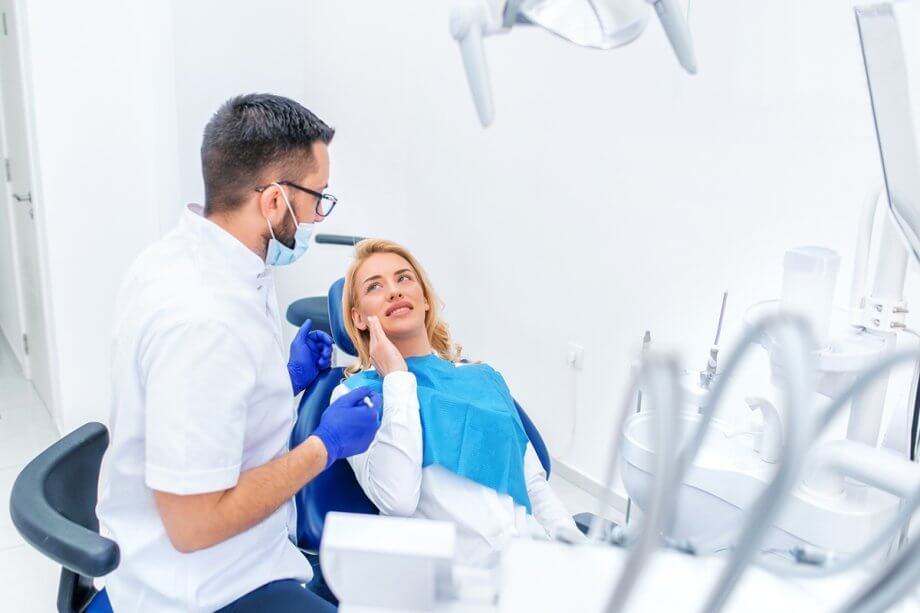Dental emergencies are common. Infections, cracked teeth, and traumatic injuries to the teeth are all deemed dental emergencies and require immediate treatment. Wherever possible, it’s best to see an endodontist for dental emergencies, as endodontists specialize in preserving natural teeth-even those that have sustained severe damage. Here’s what to know about dental emergencies.
What Types of Dental Emergencies Do Endodontists Treat?
All endodontists are dentists, but not all dentists are endodontists. Endodontists complete additional education and training to specialize in the treatment of tooth pain, disease, infection, and dental trauma (injuries to the teeth).
Infected Teeth
Infections that develop inside the tooth (pulp) are considered dental emergencies. Not only are infected teeth painful, but if the infection is not treated, it can spread into the bone or the face.
Infections develop because bacteria makes their way inside a tooth due to decay, fracture, or crack in a tooth. Bacteria can also enter a tooth through a loose dental crown or filling. In some cases, a tooth that has been previously treated with a root canal may become reinfected. Infected teeth require emergency root canals. Infections that develop after a root canal require endodontic retreatment to cure the infection.
When children get an infection in the pulp of a primary tooth (baby tooth), you’ll need to bring the child to an endodontist for a pulpotomy. Referred to as a “baby root canal”, this procedure is similar to a root canal for an adult, as it removes the pulp, cleans the pulp chamber, and seals the tooth. The treatment will also alleviate your child’s pain.
Loose or Knocked Out Teeth
Teeth that have come loose or those that have been knocked completely out (avulsed) can often be saved by an endodontist, if you get emergency treatment immediately. Loose teeth may require splinting (stabilization) to save the teeth. A tooth that has been completely knocked out may be saved with splinting, medication, and a root canal a few weeks later.
Dental Trauma (Cracked or Broken Teeth)
If you experience dental trauma that leads to a cracked or broken tooth, you’ll need emergency endodontic treatment. Dental trauma may result from a fall, a sports injury, or even biting down on something hard. If a tooth cracks or breaks below the gumline, the tooth will need to be extracted. If the tooth breaks above the gumline, it can often be saved with a root canal and dental crown.
If the dental trauma also includes lacerations to the soft tissues of the mouth, your endodontist will clean and disinfect the wound. Sutures (stitches) may also be necessary for proper healing.
Frequently Asked Questions about Dental Emergencies
Will my dental insurance pay for a knocked-out tooth?
Most dental insurance plans offer an allowance for dental emergencies. However, each policy has unique exclusions and allowances. If you do not have insurance or insurance will not pay for your emergency dental care, Contemporary Endodontics of Oklahoma accepts third-party financing from CareCredit.
Can a dead tooth be saved?
If you’ve been diagnosed with a dead tooth (a tooth that is not receiving blood supply), an emergency root canal may be able to save the tooth by restoring blood flow. Early diagnosis is essential for saving a dead tooth.
Get Emergency Dental Care in Edmond, OK
At Contemporary Endodontics of Oklahoma, Board-Certified Endodontist Dr. Victoria Ball provides emergency dental care for severely injured, damaged, or infected teeth. As a Google top-reviewed endodontist, Dr. Ball is a Diplomate of the American Board of Endodontists, representing the highest level of endodontic education. For emergency treatment, call 405-285-5042. For non-emergency care, you may send us a message.

